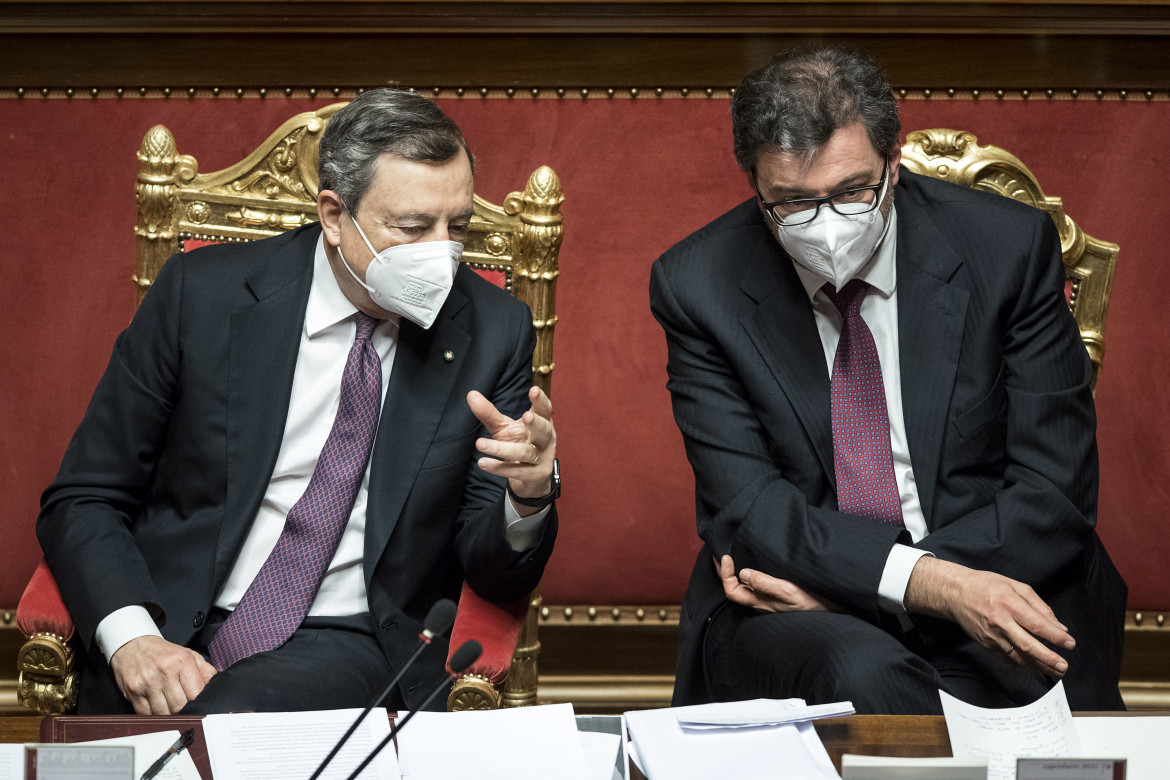Analysis
Italy passed its Budget Law, propping worker salaries with subsidies instead of a wage raise
Conservative estimates suggest that in 2024, the state collected an extra €16.5 billion due to higher tax revenues. Thus, workers are being hit by inflation twice over: their wages are not being adjusted to the higher cost of living, and they also have to pay more taxes.

The €30 billion Budget Law for 2025 has finally been passed.
In the end, it was much ado about nothing, landing on the policies of Mario Draghi. More than 40 percent of the funds allocated by the budget law (€13 billion) will be used to maintain the tax wedge cut in order to support workers' wages.
If the government had introduced the minimum wage instead, the same result could have been achieved without any burden on public finances and at a sustainable cost for businesses, which would not have reduced employment.
The reform of the IRPEF tax (€4.7 billion) has been kept, reducing it to three tax brackets, but the 2% cut to the tax rate for the second bracket was dropped: as was to be expected, the pre-agreed flat fee tax option (Concordato Fiscale) has been a fiasco.
This year, once again, the government has decided to ignore the costs of inflation on taxpayers due to the infamous fiscal drag, that is, the failure to update the amounts for the IRPEF brackets and deductions according to inflation.
Conservative estimates (source: lavoce.info) suggest that in 2024, the state collected an extra €16.5 billion due to higher tax revenues. Thus, workers are being hit by inflation twice over: their wages are not being adjusted to the higher cost of living, and they also have to pay more taxes. The introduction of a cap on deductions is generating more resources and introducing a homeopathic dose of fairness into our tax system, with a byzantine mechanism based on income and family size.
A temporary increase in revenue has also been achieved by asking for a “loan” of €7 billion from banks and insurance companies through advances on future taxes.
Since we are in the pre-Christmas period, the bonus season is burgeoning: there are some for building renovations, the purchase of household appliances, extracurricular sports and recreational activities, new births, rent, and psychological support.
For less affluent Italians, that’s better than nothing, but what is actually needed is structural investments in health care, education, and family support. For the latter, the government has decided to allocate lavish resources to schools run by religious institutions that welcome students with disabilities.
After the cuts arising from the spending reviews for ministries (€2.6 billion), health care is at least kept in a waking coma thanks to the absence of further cuts, but the cuts to university funding threaten to deal a death blow to public higher education.
The senselessness of these cuts is even more glaring when one considers that Italy is ranked last in Europe for spending on universities and that there is a broad consensus among economists (source: Reuters) that we urgently need to invest in research and universities to revive the country's productivity, which has been stagnating for decades.
The government thinks otherwise, and has gone all-in on the premium IRES deduction (€466 million) that deducts profits reinvested in businesses, on a maxi-deduction for companies that hire new permanent employees and on renewed support for small and medium-sized businesses.
The largest investment (€1.4 billion) is for the Messina Strait Bridge, the eternal boondoggle of major public works. One billion has been earmarked for the TAV high speed train line and one more for the railways, with the hope that the constant delays of the past year will be reduced.
In conclusion, this is a Draghian budget law that is also notable for the distribution of perks and bonuses to the various interest groups that support the government, as shown by the no less than 89 line items under €5 million (source: Il Sole24Ore).
As a budget law, it is fundamentally insufficient, not even attempting to solve the problem of the anemic growth of the Italian economy, and shows the bleak politics of this government.
And it comes amid a bleak economic picture for the Italian economy: industrial production has been falling for 21 consecutive months (source: ISTAT), and GDP growth for 2024 is stuck at 0.5 percent compared to the 1 percent forecast by the government.
The situation will only worsen further due to the increased tariffs brought on by the incoming Trump presidency and the intention to substantially increase military spending, which only has a marginal impact on economic growth but takes away valuable public resources from health, education and projects to combat climate change.
Originally published at https://ilmanifesto.it/manovra-draghiana-con-brepende on 2024-12-22
